The Vegas Golden Knights won the Stanley Cup in only their sixth season of existence. They were a pleasant surprise in 2017-18, reaching the Final in their inaugural season but managed to remain competitive, missing the playoffs only once, until 2022-23 when they put together a great regular season and remarkable playoff run. The Golden Knights went 16-6 in the playoffs and easily defeated the Florida Panthers in a five-game series to win their first title in franchise history.
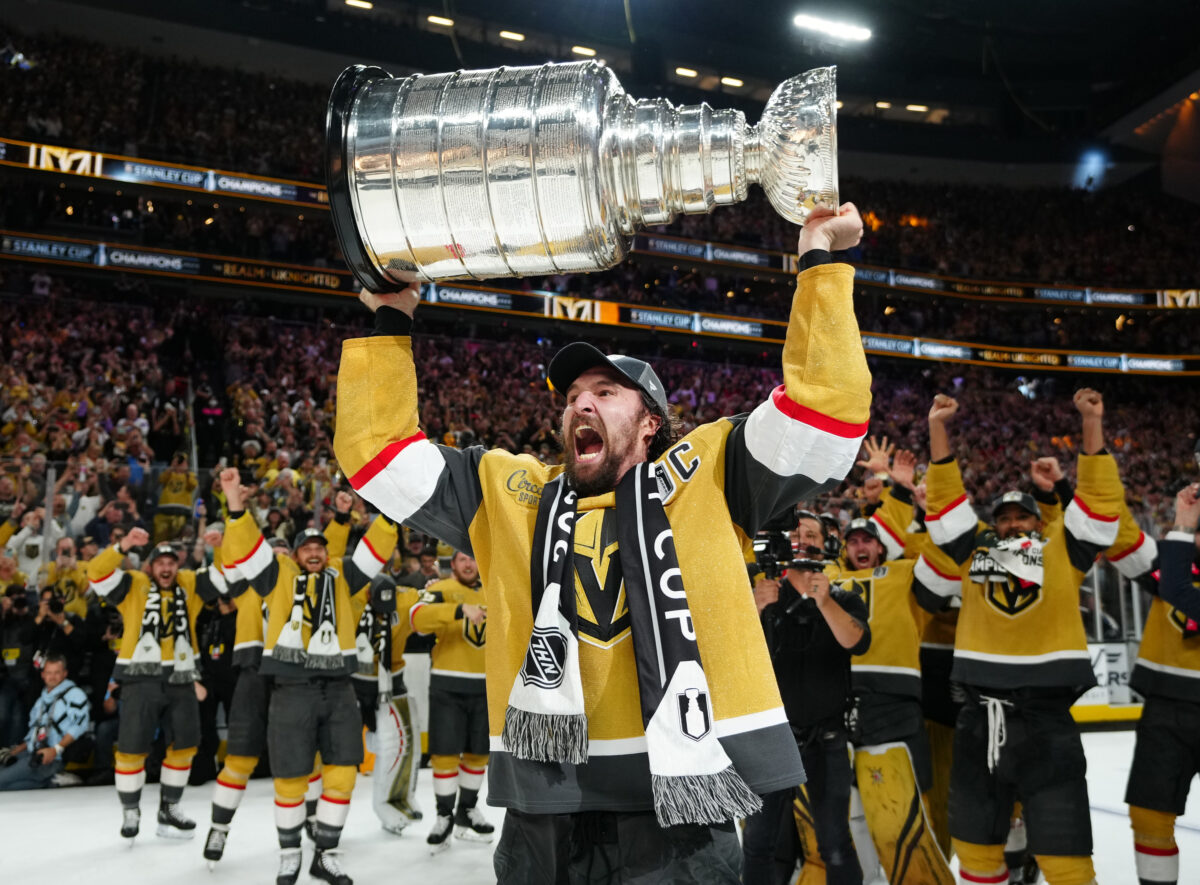
Their path to the Cup is unprecedented. Aside from being aggressive from the moment they became a franchise, selecting multiple veterans in the 2017 NHL Expansion Draft with the objective of winning immediately, they also built their team differently, and many front offices will take note of it.
Related: Golden Knights’ Stanley Cup Heroes
What can the rest of the league learn from the Golden Knights? How does their way of thinking change how teams will be built in the future? Yes, the expansion draft gave them a good start, but the way they’ve operated since allowed them to win the Cup.
Vegas’ Aggressive Moves With a Plan
The Golden Knights made a lot of big moves. However, every time they made a splash for a big-named player, they made sure they were locked up on a long-term deal. When they acquired Mark Stone at the 2019 trade deadline, they subsequently extended him for eight years. The blockbuster move for Jack Eichel in the middle of the 2021-22 season gave them a player who was under contract for four and a half more seasons. When they signed Alex Pietrangelo, they gave him a seven-year deal to make him the building block on defense. The team was also slowly building a championship-caliber core that could lead them to a Cup.

Even smaller moves were made with the intention of putting together a strong core. Alec Martinez was acquired at the 2020 trade deadline from the Los Angeles Kings to strengthen the defensive unit. After a year and a half of strong play, the team re-signed him to a three-year deal to keep an essential part of that unit. Martinez is a free agent after the 2023-24 season, but the rest of the defense is under contract until at least 2024-25. It’s been management’s objective to not only find talented players but keep them for years to come; twelve of their skaters are under contract through the 2024-25 season, giving the front office the ability to easily add depth players to a strong group.
At the same time, the Golden Knights knew which players they’d have to inevitably move as a trade-off for adding elite talent. Their big moves had them pressed up against the salary cap and, as a result, they traded Marc-Andre Fleury and Ryan Reeves in the 2021 offseason and Max Pacioretty in the 2022 offseason. Yes, they aggressively added players to the roster but there was a method to their madness.
Golden Knights Show Value of Hot-Hand Goaltending
This season, goaltenders struggled throughout the NHL and the playoffs were no exception, even for elite netminders. Linus Ullmark put together a Vezina Trophy-caliber season for the Presidents’ Trophy-winning Boston Bruins, but he unraveled in the First Round, with -1.6 goals saved above average (GSAA). Andrei Vasilevskiy is one of the best goaltenders in the league, winning the Vezina Trophy in 2019 and the Conn Smythe Trophy in 2021 but had -5.4 GSAA in the First Round as the Tampa Bay Lightning lost their series to the Toronto Maple Leafs. Jake Oettinger had a remarkable season but fell apart in the playoffs with -4.8 GSAA despite that the Dallas Stars reached the Western Conference Final.
Many teams will begin to question whether they need elite goaltenders to win a Cup, especially since the two who played in the Final were Sergei Bobrovsky for the Panthers and Adin Hill for the Golden Knights.
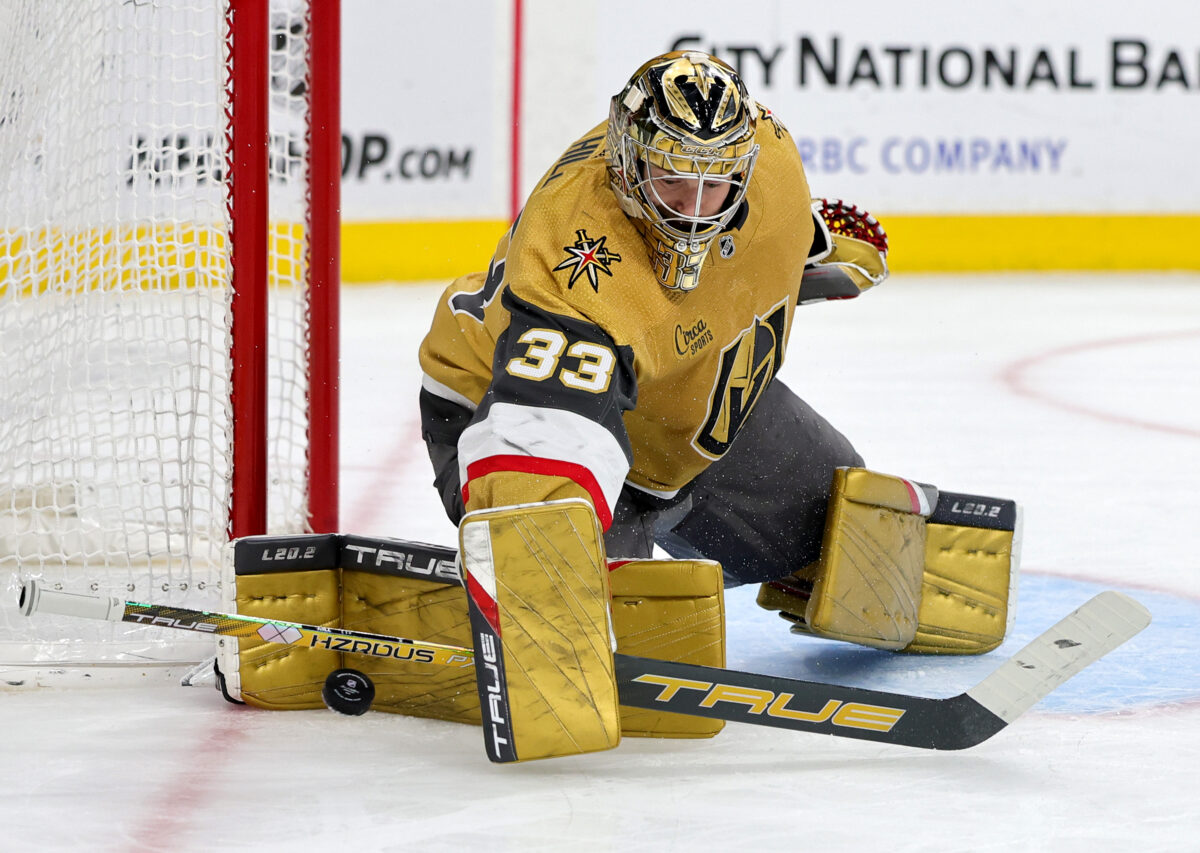
Bobrovsky had an awful regular season with a .901 save percentage (SV%) and a 3.07 goals-against average (GAA) on 1466 shots with a -4.6 GSAA. Meanwhile, Hill only started 25 games in the regular season and wasn’t even the starter for the Golden Knights when the playoffs starts. However, both goaltenders put together a remarkable playoff run with multiple lights-out performances. Hill’s performance in the Final, in particular, helped seal the Golden Knights’ Cup victory, saving 143 of 155 shots.
Hill’s emergence doesn’t appear to be a masterful move by the Golden Knights’ front office; they never invested in one goaltender. Instead, they started five in the regular season and went with the goaltender who had momentum in the playoffs. At first, they turned to Laurent Brossoit, but when he left Game 3 of the Second Round with an injury, they turned to Hill, and he took off. The Golden Knights spent under $10 million on the position (the Panthers spend that on Bobrovsky alone), giving them room to upgrade the roster elsewhere.
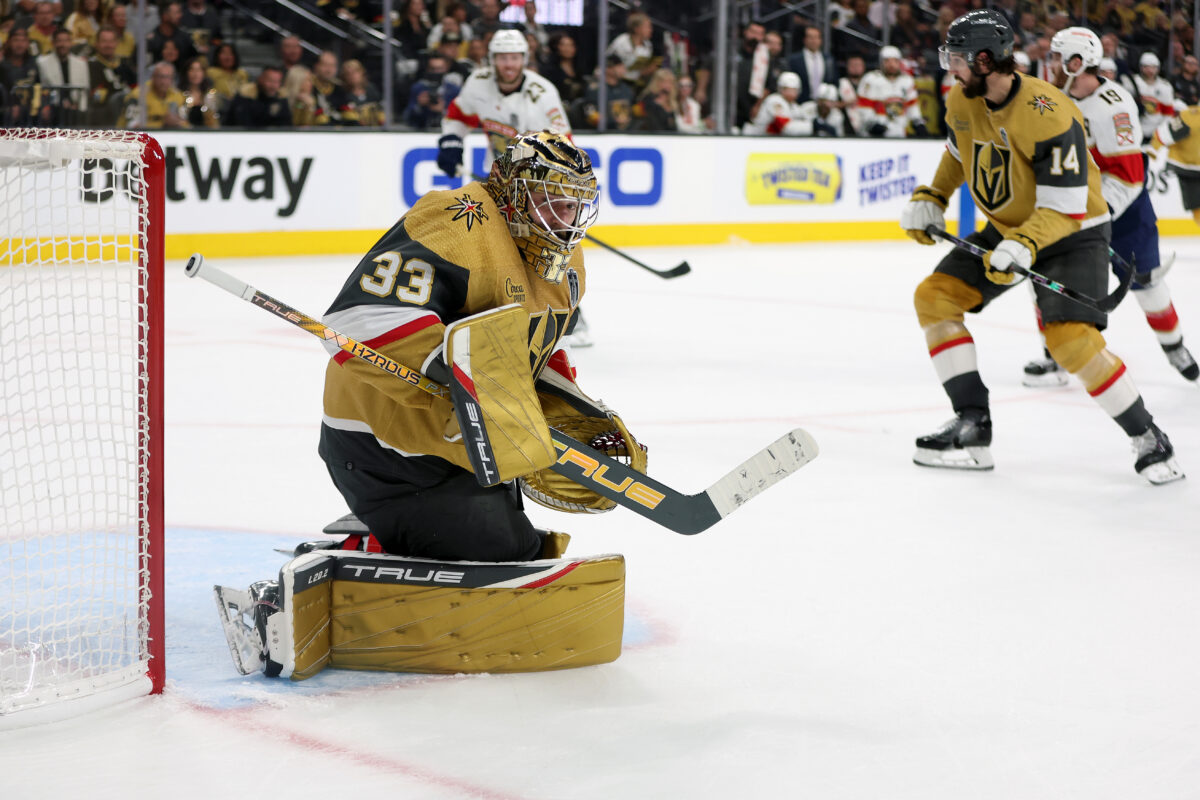
Consider this: Only a few years ago, they were spending $12 million on goaltending, with Fluery and Robin Lehner splitting starts, hoping one or both of them would carry them to a championship. In 2023, they proved that a team doesn’t need to spend big on a goaltender to win the Cup (Hill’s contract is only $2.1 million per year). In a league where goals are up and offense dominates, front offices will take note of this moving forward.
Golden Knights Show How a Team Can Add Depth
Eichel, Stone, and Pietrangelo take up $28.2 million of the team’s salary cap, making the Golden Knights one of the more top-heavy teams in the league, both in cap usage and roster structure. To succeed, they needed to find players at minimal cost who can play a specific role and fit in with the rest of the team. In the 2021-22 season, they saw the downside of relying on stars, as injuries plagued them, and they missed the playoffs for the first and only time in their history. This season, they found value in players who could overachieve and play a pivotal role in a successful season.
Michael Amadio was claimed off waivers from the Maple Leafs in 2021-22. He scored 16 goals and 11 assists this season and was an integral part of the team’s playoff run, with five goals and five assists. Phil Kessel was signed in the 2022 offseason to a one-year $1.5 million deal. While he wasn’t a factor in the playoffs, playing in only four games, he played all 82 regular-season games and added depth to the offense, scoring 14 goals and 22 assists despite averaging only 12:49 ice time. At the deadline, Vegas acquired Ivan Barbashev from the St. Louis Blues in exchange for prospect Zach Dean, adding a middle-six winger to the offense, and he became one of their best forwards in the playoff run, scoring seven goals and 11 assists.
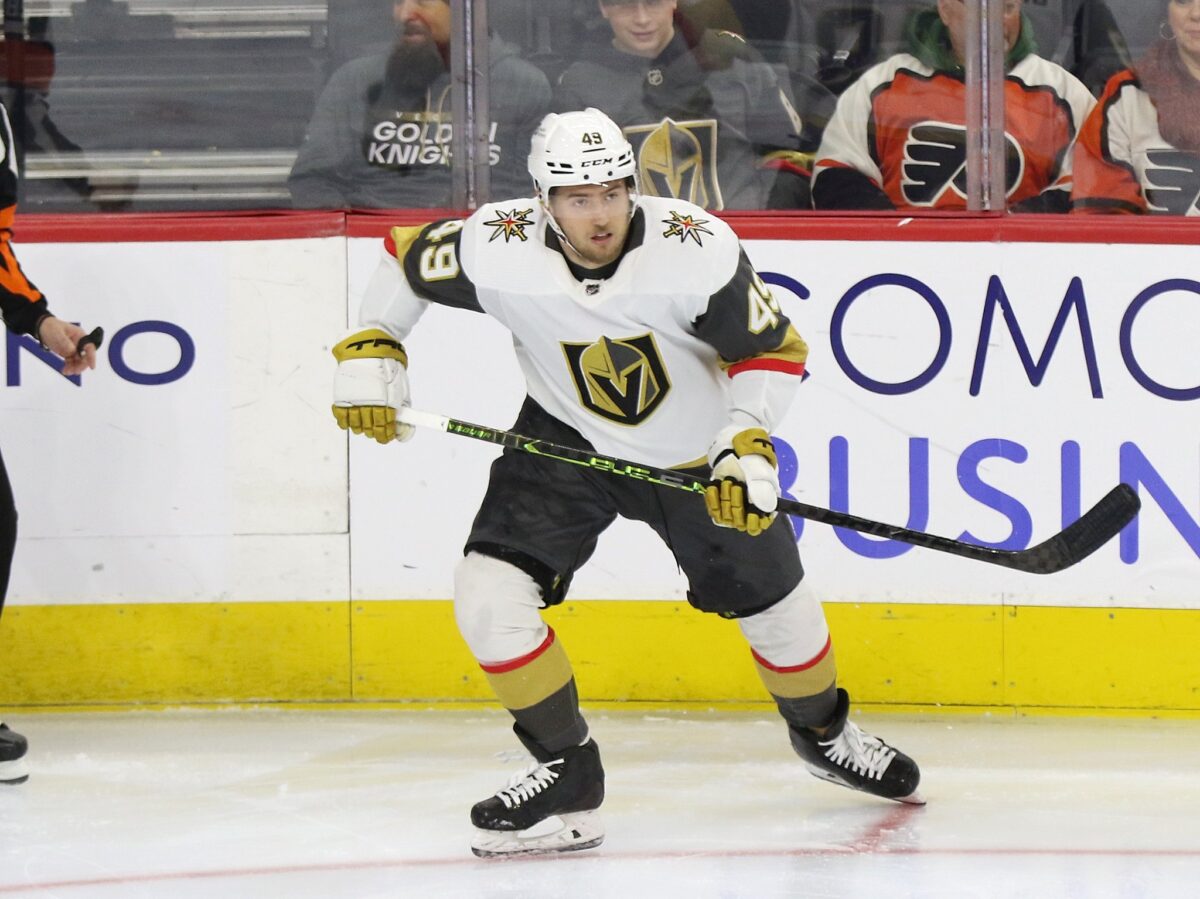
Every team must make those minimal-cost signings and value additions to succeed. The Golden Knights added players who rounded out their roster, from skaters taking on specific roles to adding unique skillsets that pieced together a team that could both fit under the salary cap and be a contender.
Granted, a common knock against the team is that they dodge the cap by moving players onto long-term injured reserve during the season and bringing them back for the playoffs. Stone, for example, played only 43 games and missed the second half of the season only to return for the playoff run. However, the Golden Knights finished the season with the best record in the Western Conference and were in a fight down the stretch with the Edmonton Oilers and Colorado Avalanche for home-ice advantage, meaning they won the conference without Stone’s presence, speaking volumes about their depth and how well the roster was structured.
Great Defensive Units Win Championships
The Golden Knights are driven by their star power up front. However, the defense is what allowed them to win the Stanley Cup. They built a unit that could not only impact the game in all three zones but adapt to any opponent.
Martinez was the shot blocker who defended near the net and play the shooting lanes – exactly what teams want in the defensive zone (his 5.1 defensive point shares were a team-high this year). Pietrangelo was an elite two-way player who scored 11 goals and 43 assists to lead the unit, while his skating ability allowed him to create turnovers on the rush. Shea Theodore and Zach Whitecloud stepped up as two-way players in the middle pairing, while Brayden McNabb was the hard-hitting defenseman, delivering a team-high 279 hits this season. They all provided the team with a strong and versatile defense that could play up to their competition.
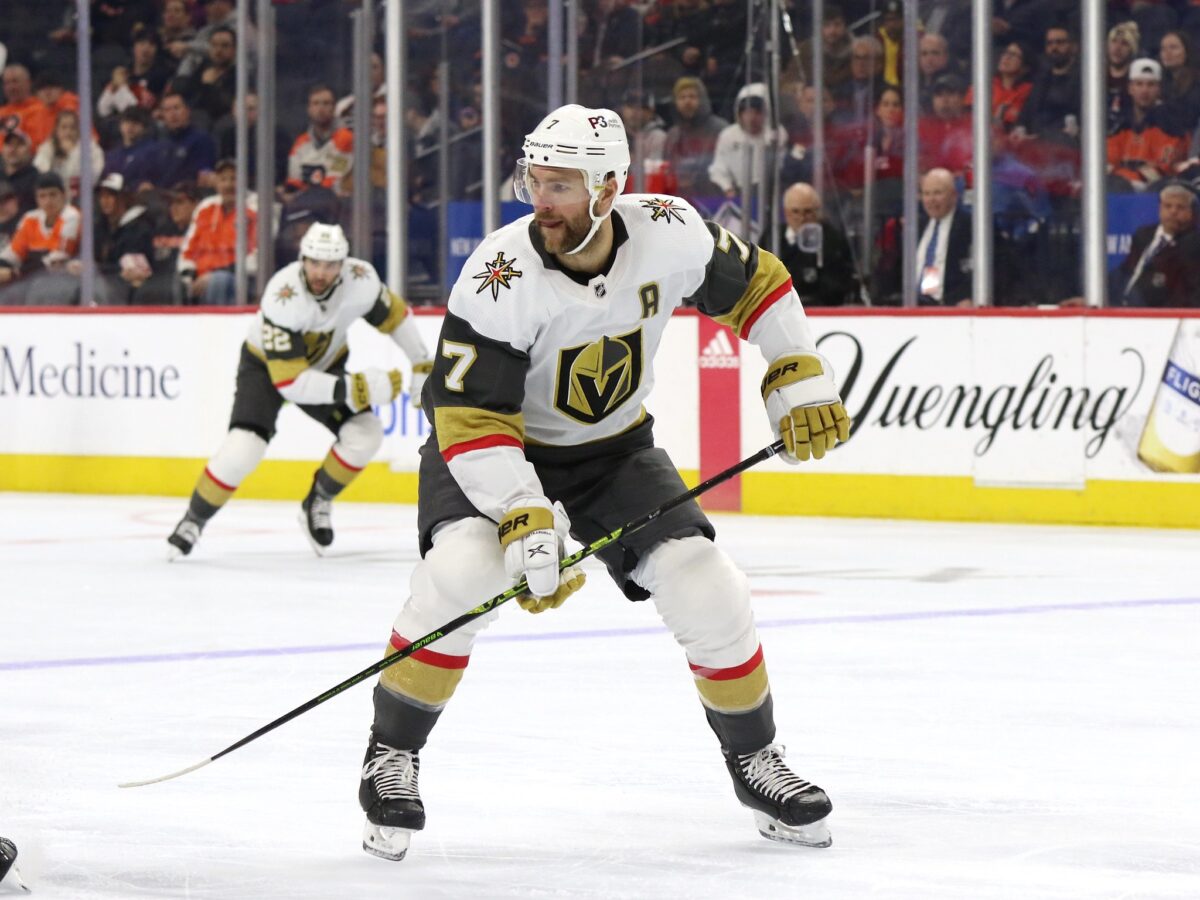
The defense used its speed to limit the Oilers’ fast-paced offense led by Connor McDavid and Leon Draisaitl, two of the best skaters in the league. They stepped up on the rush and in space to create turnovers and limit scoring chances, allowing the Golden Knights to win the series in six games. They used their physicality to overpower the Panthers in the Final to limit their opponent to 12 goals in five games. Additionally, they were gap-sound and forced tough shots on the net and cleaned up loose pucks near the goal, helping out Hill in every contest.
The modern game is not only about playing great defense but to have a unit that can impact every facet of the game. The final four teams showed that their defense could create turnovers and set up the offense. The Golden Knights, meanwhile, showed that this can be the difference between winning and losing the Cup. In the Final, their defense scored five goals and 12 assists to put the team over the top.
Other Lessons the Golden Knights Provide
Getting the head coach right was pivotal. It wasn’t about finding the best coach available but finding the one who fits the roster and can implement a system that works for them.
Bruce Cassidy was hired in the 2022 offseason with the hope of balancing out a team that had become too offensive-minded under former head coach Pete DeBoer. He did that – the Golden Knights scored 3.26 goals per game and allowed only 2.74 goals per game – and also made the team more situationally aware. Every skater knew exactly what they needed to do to help secure victories, which was noticeable in the playoffs when the team would control the game as they were playing to their competition.
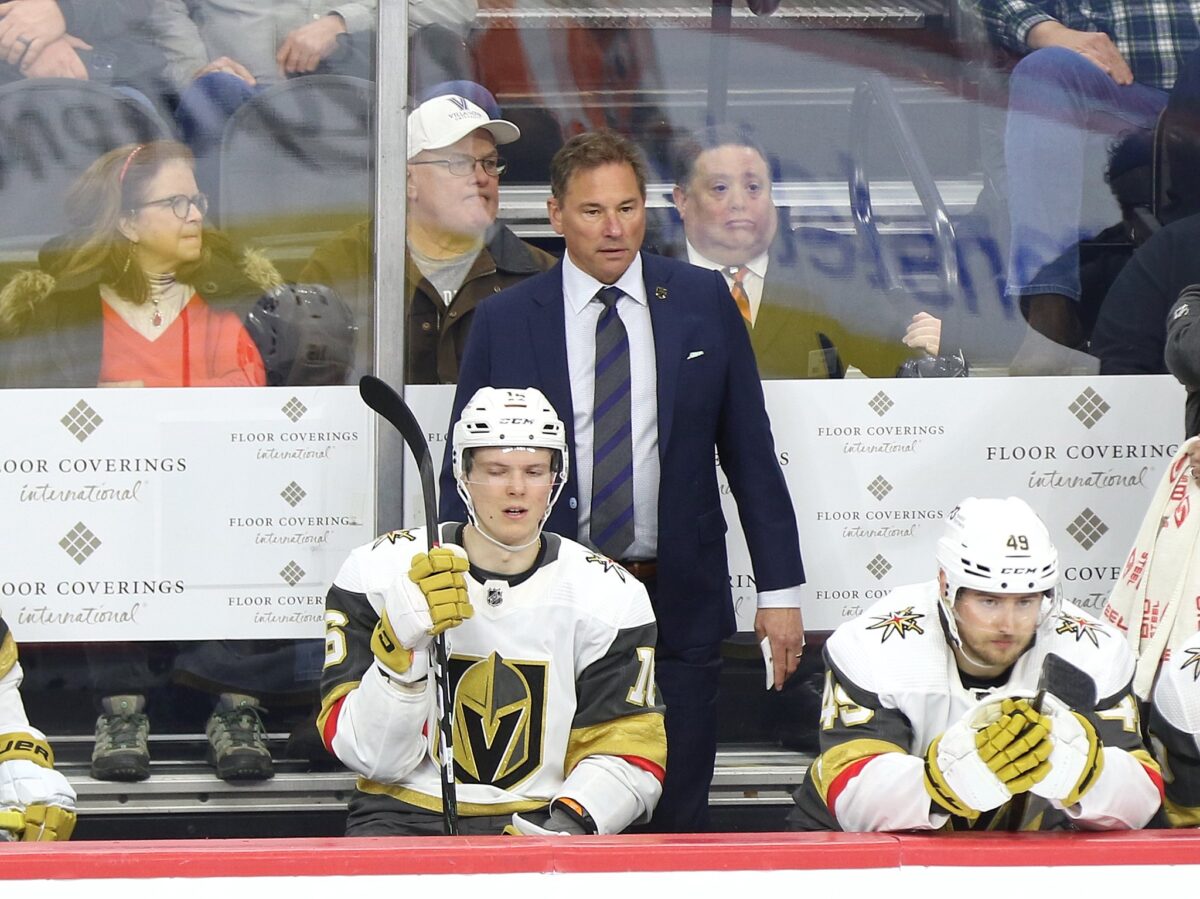
There’s also value to investing in star power. The Golden Knights reached the Final in 2018 but didn’t have the star power to make a difference, allowing the Washington Capitals to win in five games. That season, Jonathan Marchessault had his first big campaign, scoring 27 goals and 48 assists, and was only starting to emerge as a star at 27 years old. He’s now in his prime and, along with Eichel, helped carry the team to the Cup. Marchessault’s 13 goals and 12 assists landed him the Conn Smythe Trophy.
Granted, it’s hard to find elite talent, and without it, teams have a tough time competing. However, the real challenge isn’t finding stars but investing and building around them. Plenty of teams have great players who can get them to the playoffs, but without the complementary pieces to support them, they are easily eliminated. The Golden Knights not only invested in Eichel, Marchessault, and Stone but added players who could elevate their skills to make them unbeatable in the playoffs.
It’s easy to look at the Golden Knights as an expansion franchise that won the lottery. But they’ve been much more than that. Only seven players from the original team were on the Cup-winning roster, albeit the “misfit line” started Game 5, a full-circle moment for the franchise. Vegas had a strong start but built a great team in six years. For the rest of the league, it’s important to take note as they, too, can build a Cup contender in only a few short years.
